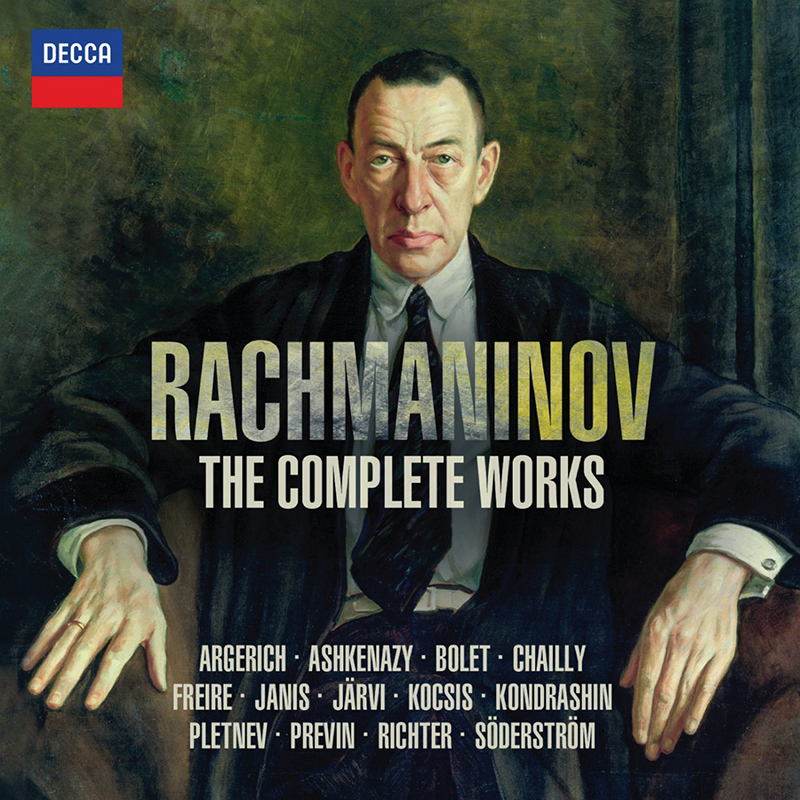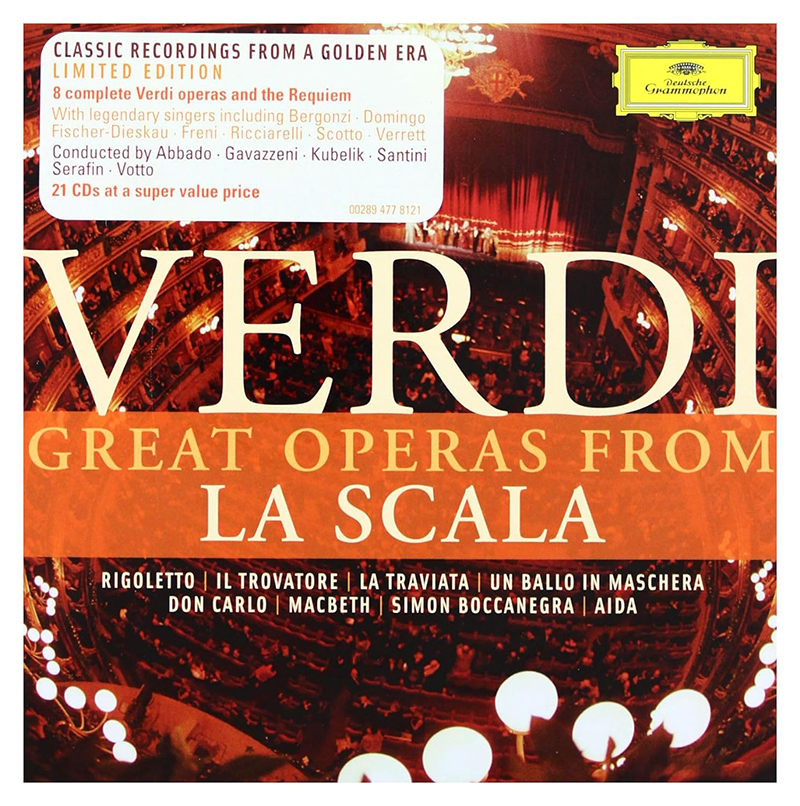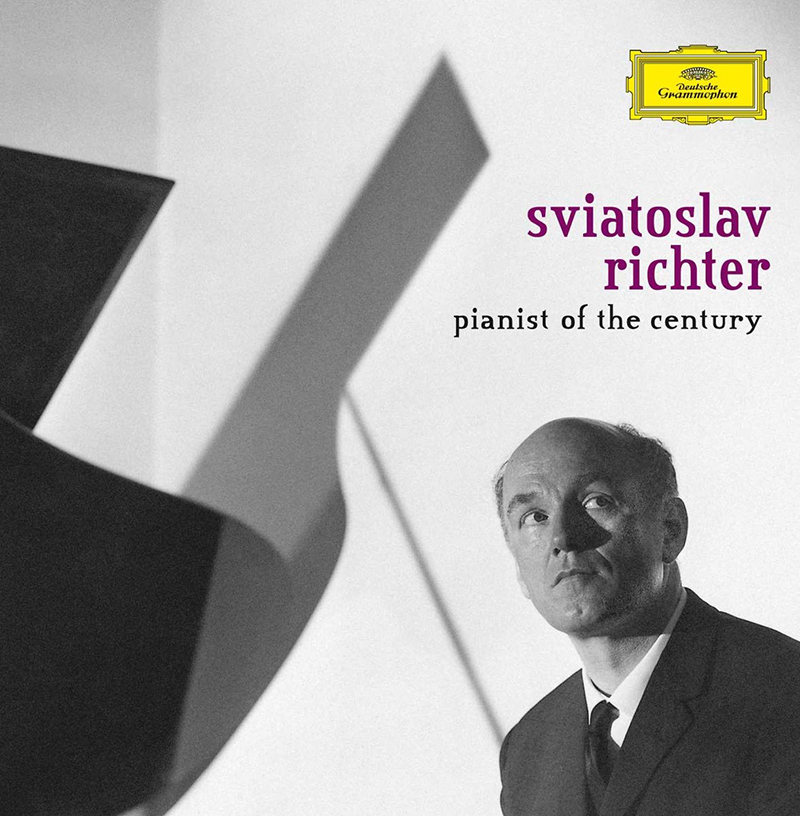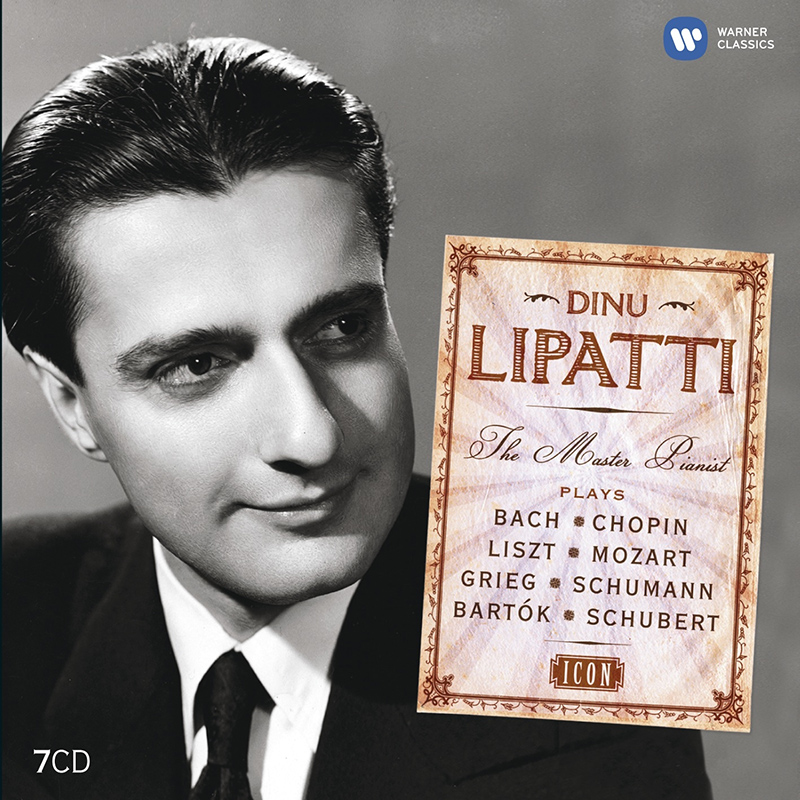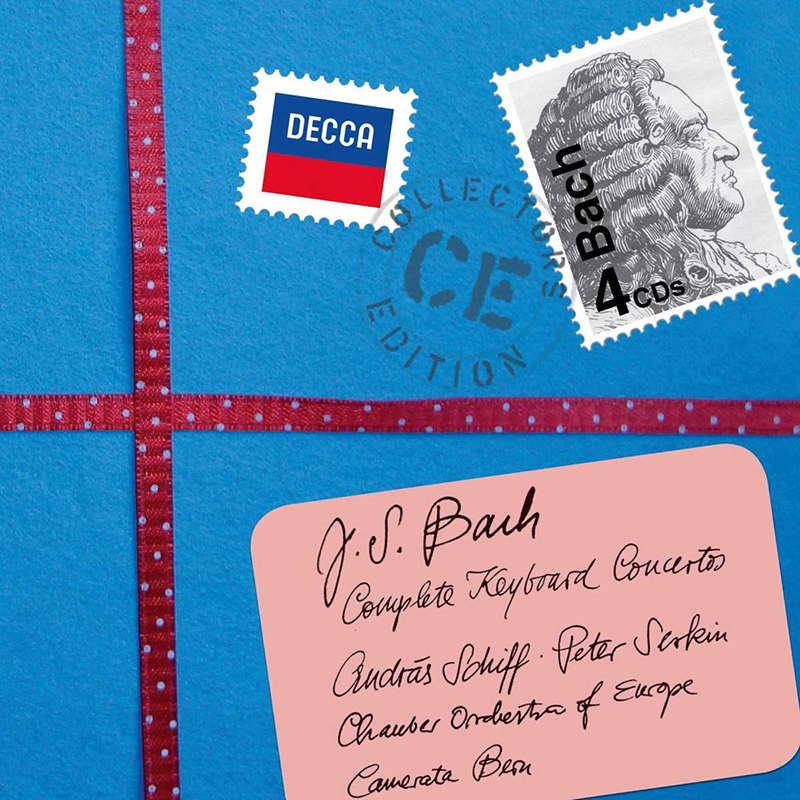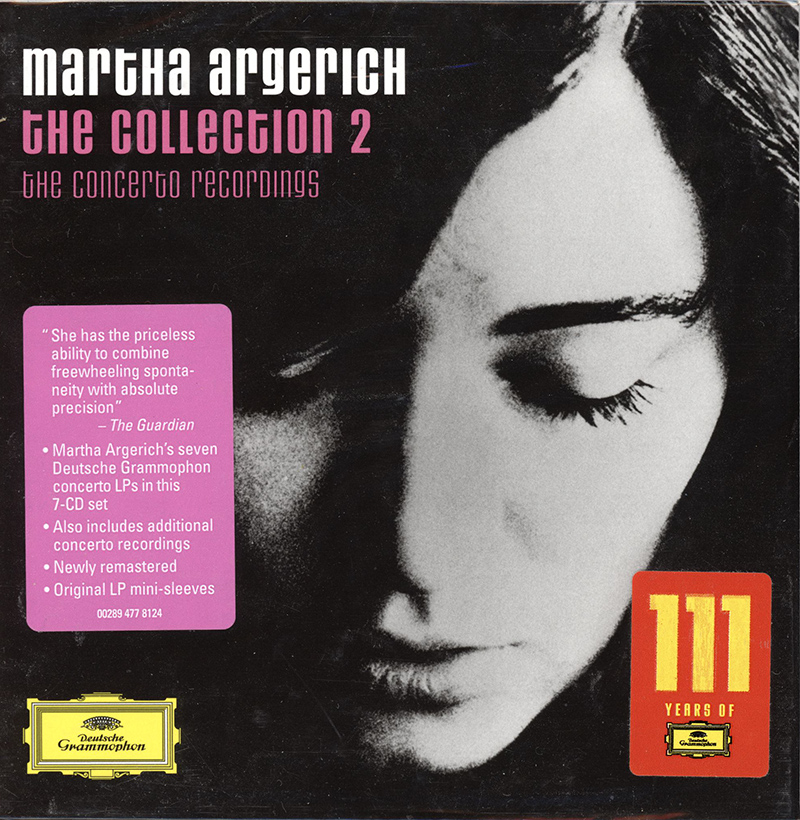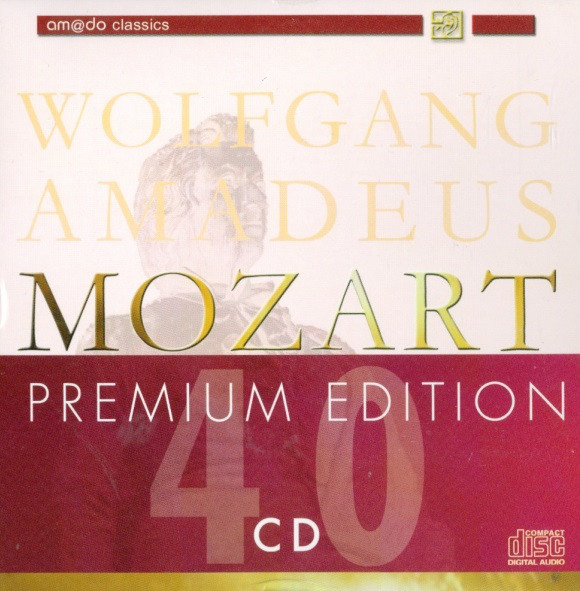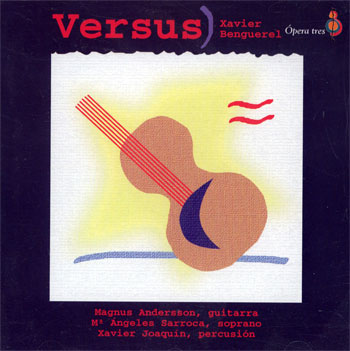Logowanie
KOLEKCJE!
BACH, CHOPIN, LISZT, MOZART, GRIEG, Dinu Lipatti, Otto Ackermann, Ernest Ansermet
The Master Pianist
PROKOFIEV, CHOPIN, TCHAIKOVSKY, SCHUMANN, BEETHOVEN, Martha Argerich, Claudio Abbado, Giuseppe Sinopoli
The Concerto Recordings
The Collection 2
Jakość LABORATORYJNA!
ORFF, Gundula Janowitz, Gerhard Stolze, Dietrich-Fischer Dieskau, Deutsche Oper Berlin, Eugen Jochum
Carmina Burana
ESOTERIC - NUMER JEDEN W ŚWIECIE AUDIOFILII I MELOMANÓW - SACD HYBR
Winylowy niezbędnik
ClearAudio
Essence MC
kumulacja zoptymalizowana: najlepsze z najważniejszych i najważniejsze z najlepszych cech przetworników Clearaudio
Direct-To-Disc
PIAZZOLLA, ChamberJam Europe
Tangos del Ángel y del Diablo
Direct-to-Disc ( D2D ) - Numbered Limited Edition
Xavier Benguerel
Versus
- 1.- Versus (1973) 5'40"
- Magnus Andersson, guitarra.
- 2.- Cantus (1982) 6'25°
- Magnus Andersson, guitarra.
- 3.- Intento a dos (1970) 10'12"
- Magnus Andersson, guitarra.
- Xavier Joaquin, percusion
- 4.- Los enigmas (1971) 15'21"
- Ma Angeles Sarroca, soprano.
- Magnus Andersson, guitarra.
- Xavier Joaquin, percusion.
- 5.- Astral (1979) 12'30"
- Para guitarra, piano a cuatro manos,
- dos percusionistas, violoncello y
- contrabajo.
- Magnus Andersson, guitarra.
- Grupo Barcelona 216,
- director: Ernest Martfnez Izquierdo.
- 6.- Tempo (1983) 12'37"
- Para guitarra y orquesta de cuerda.
- Orquesta de camara de Orebro (Suecia),
- director: Tommy Andersson.
- Magnus Andersson, guitarra.
- Duracion total: 62'45"'
- Xavier Benguerel - guitar
>>> Większa okładka A <<<
Magnus Andersson w porywającym repertuarze utworów jednego z najbardziej znanych współczesnych kompozytorów hiszpańskich.
This recording contains a significant part of the guitar output of Xavier Benguerel, who became interested in the instrument largely thanks to his friendship with the late German guitarist Siegfried Behrend, who provided him with the stimulus. It was as a result of this relationship that Benguerel began to compose works for the guitar. Subsequently, the guitarists Gabriel Estarellas and Francesc de Paula asked him to continue work and to discover all the instrument's possibilities within the musical language of the twentieth century. Finally, the interest in Benguerel's music shown at all times by Magnus Andersson, who has performed it on many occasions, has made this recording possible.
Versus (1973) is dedicated to Siegfried Behrend and is the composer's most widely-played guitar work. The score includes a fragment -O Virgo splendensfrom the Llibre Vermell of Montserrat (fourteenth century) in the form of a collage, a procedure which Benguerel was to use in subsequent works.
Cantus (1982) is one of the last works from a creative period in which Benguerel was searching almost constantly for a language which would provide a basis and summary for all the unease reflected in his works from the seventies. The piece includes a short anonymous seventeenth century melody called Bitayna Diridnya.
Intento a dos (1970) comes from a creative period which covered almost fifteen years; the guitar and percussion use a procedure which was habitual during this stage of the composer's development -experimentation with instrumental colour.
Los enigmas (1971) is based on Pablo Neruda's text El gran oceano, from the Canto general and is divided into two parts -Los enigmas of the title and Las pie, dras de la orilla.
Astral (1979) arose from the wish to write a piece with references to the astral world. The accent, particularly upon timbre, provides an orchestral colour which links the work in imaginary form with a space beyond this earth.
Tempo (1983) is dedicated to Francese de Paula and was originally conceived for string quartet and guitar. The version on this recording, for string orchestra and soloist, is the final one. It is in one movement, divided into four sections, the third of which is a major cadenza for the solo guitar.
XAVIER BENGUEREL
Born in Barcelona in 1931, Benguerel moved to Santiago de Chile in 1940 with his parents, exiled as a result of the Spanish Civil War, returning in 1954, a key year in his artistic career, bringing him into the so-called "Generation of 51", and the commencement of his studies with Maestro Cristofor Taltabull.
These two facts are highly significant, since they meant that he very quickly joined the musical movement in his country while at the same time being in progressive contact with the most advanced techniques and aesthetics which arose in Europe in the first half of the century.
While considered basically self-taught as a composer, he quickly moved into the field of the most innovative tendencies such as those represented by musicians of the standing of Bartok or Stravinsky, followed shortly after by the Viennese School and the Poles.
Notable developments in his career have been the concert dedicated to his works in the Catalan Palace of Music in Barcelona in 1972, the Luigi Dallapiccola Prize in 1977, commissions from the city of Hagen, the Schutz Festival in Berlin, Sudwestfunk Baden-Baden, the Zagreb Biennale, the National Orchestra of Spain, the Spanish Radio and Television Orchestra, the 1990 Alicante Festival, the Torroella de Montgrf Festival, the Catalonia Millenium Concert in the Gran Teatre del Liceu in Barcelona, the Fourth Festival of Contemporary Music of Barcelona, the 1994 Perpignan Aujourd'hui Musiques and the International Musiktage Dom zu Speyer in 1997.
Benguerel is a member of the Confluencies independent group of Catalan composers.
In a highly personal style, he has composed works in all genres, from intimate pieces for solo instruments to opera, cantata, symphonic works or chamber music. He has been extensively recorded and enjoys wide international acknowledgement by both public and critics.
MAGNUS ANDERSSON
Born in 1956, Magnus Andersson studied guitar with William Grandison at Trinity College of Music London, and with Angelo Gilardino at the Academia G.B. Viotti di Musica in Verceli, in Italy. He attended Andres Segovia Chair classes in Spain in 1973 and, in 1976, studied under the supervision of Siegfried Behrend in Germany.
Magnus Andersson is currently considered an authority in the per- formance of contemporary music, and has been invited to the main festivals.
He has recorded for the major European radio stations and tours regularly in Australia, the United States, Japan and Korea as well as in Spain. He is the dedicatee of more than thirty contemporary works by such composers as Brian Ferneyhough, Franco Donatom, Aldo Clementi, James Dillon, Richard Barrett, Luca Francesconi, Claudio Ambrosim and Stefano Scodanibbio, among others.
In 1982, he was awarded the Performer's Prize of the Swedish Composers' Association and, in 1984, the Kranschteiner Musical Performance Prize in Darmstadt, Germany. He has received the Swedish Grammophone Prize twice for his recordings.
At present, Magnus Andersson is much in demand for master classes in many countries: since 1984, he has acted as maestro at the Ferienkursen fur Neue Musik at Darmstadt.
Ma ANGELES SARROCA
Ma Angeles Sarroca graduated in singing and piano from the Senior Municipal Conservatory of Music in Barcelona where she now teaches singing. Her repertoire includes Opera, Zarzuela, Lied and Oratorio, and she has perfor med successfully throughout Spain and in France, Italy, the United Kingdom and Germany. She sings regularly at the seasons of the Gran Teatre del Liceu in Barcelona, of the Friends of Opera in Sabadell and of Opera a Catalunya. Her roles include Micaela, Mimi, Musetta and Violetta. She is frequently asked to act as a member of the jury for the Selezione Internazionale Mario del Monaco Award in the Italian city of Marsala. Notable among her recital work is the program dedicated to Federico Mompou, with the composer's widow, the pianist Carmen Bravo.
XAVIER JOAQUIN
Born in Barcelona, Xavier Joaquin studied piano and percussion in the Senior Municipal Conservatory of Music there, winning the Extraordinary Percussion Prize in 1973. He received the Maria Barrientos Award in 1977, First Prize at the Second Yamaha Competition in Spain in 1984, and the MeisterDiplom in percussion from the University of Wurzburg, Germany, in 1987. In 1991, he was granted the National Music Prize of the Regional Government of Catalonia. He performed many solo recitals both in Spain and overseas. Xavier Joaquin died in Barcelona in 1996.
